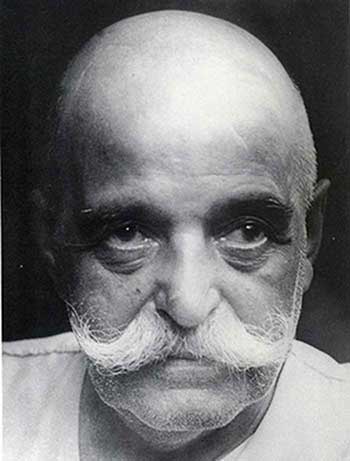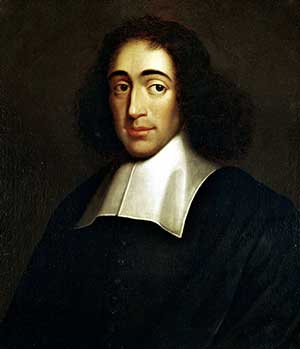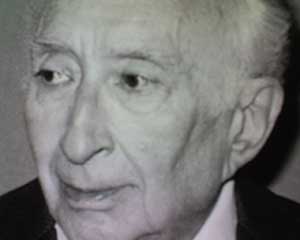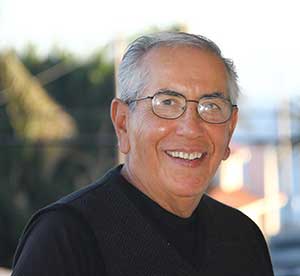Gurdjieff
 G.I. Grudjieff was born sometime between 1866 and 1877 in Alexandropol, near the Russian-Turkish border. As a young man he trained in Kars as both a priest and a physician and devoted all his energies to searching for fundamental truths: Who am I? What is the purpose of our life? For some twenty years, Gufdjieff traveled in the most remote regions of Central Asia and the Middle East, sometimes gaining entrance to esoteric schools to which few, if any, Westerners had ever been admitted. Afterwards, he set about putting what he had learned into a form that would be understandable and meaningful to the Western World.
G.I. Grudjieff was born sometime between 1866 and 1877 in Alexandropol, near the Russian-Turkish border. As a young man he trained in Kars as both a priest and a physician and devoted all his energies to searching for fundamental truths: Who am I? What is the purpose of our life? For some twenty years, Gufdjieff traveled in the most remote regions of Central Asia and the Middle East, sometimes gaining entrance to esoteric schools to which few, if any, Westerners had ever been admitted. Afterwards, he set about putting what he had learned into a form that would be understandable and meaningful to the Western World.
Before the First World War, Gudjieff began to gather pupils in Russia. He continued his work with a small party of followers during the years of Russian revolution, moving to Essentuki in the Caucasus, and then through Tiflis, Constantinople, Berlin, and London. He finally settled in France and established at the Chateau Le Prieure at Fontainebleau-Avon in October of 1922.
People who met Gurdjieff felt that he was an extraordinary man. He maintained that through the effort to Work on oneself, a person could develop new faculties which would enable one to know oneself truthfully and to function harmoniously, with full developed Consciousness, Conscience, and Will.
Gurjieff died in Paris in 1949.
Lewis’s Comments:
Gurdjieff’s ideas are shared in a book written by one of his students, P.D. Ouspensky. A book titled “In Search of the Miraculous” and it’s truly a miraculous adventure that Ouspenky takes us on. I don’t follow all of Gurdjieff ideas but what I do relate to is the psychology of human nature which I find profound.
Such as: Man is asleep, self-observation, being identified, buffers, to awaken, knowledge and being, essence and personality. The necessity of a group, internal considering, we do not know ourselves, there are many ‘I’s in us and becoming a master of oneself. Great inner effort is necessary to achieve freedom.
I find that it is absolutely necessary for a new student of this work to be able to go on this self-knowledge adventure is to become familiar with Gurdjieff’s ideas shared in this marvelous book.
Spinoza
 November 24, 1632-1677 …. Spinoza was excommunicated by the Jewish community at age 24 probably for holding radical views of the immortality of the soul. He was born in Amsterdam to Portuguese Jewish family whose ancestors fled to the Netherlands, escaping the persecutions of the Catholic Inquisition in 1497.
November 24, 1632-1677 …. Spinoza was excommunicated by the Jewish community at age 24 probably for holding radical views of the immortality of the soul. He was born in Amsterdam to Portuguese Jewish family whose ancestors fled to the Netherlands, escaping the persecutions of the Catholic Inquisition in 1497.
Spinoza had a traditional Jewish education and was influenced by a wide array of thinkers from Aristotle to Descartes and Hobbs to the Latin stoics and historians. Descartes early influence gave way to Spinoza’s new philosophical direction; consequently, Spinoza understood for man to come to a higher character he must begin to understand his emotions, the nature of God and the nature of the mind.
Spinoza’s advanced philosophy led the birth to true science of psychoanalysis which is why Spinoza is viewed, even to this day, as the father of modern psychology: Freud as many others benefited by Spinoza ideas. Two aspects of the Ethics immediately become apparent as soon as one opens the book: First, it is in geometrical form, the form of Euclid’s geometry, with propositions and proofs, axioms and corollaries. Spinoza’s geometric method, a not unfamiliar scientific form of presentation at the time, expresses the systematic and logical structure of knowledge and its claim to mathematical kind of certainty.
He understood that natural laws are governed and manifest from God’s nature and that these laws govern the whole universe: Einstein clearly saw the truth in Spinoza’s philosophy and announces, “My God is the God of Spinoza.” Spinoza clearly perceived the law of necessity that emanates from God’s nature and that freewill is a false belief due to man’s ignorance of the true causes of nature of things. For every effect there has to be a cause for it to exist or act. Man is aware of his desires but is ignorant of the causes that stimulated and determine his desires in the first place.
Even to this day, Spinoza’s philosophy shocks conventional wisdom by claiming that God is not a personal God, and his life was threatened for his views by proclaiming that the Bible was not the work of God but by men whose imagination was stimulated during dreams and unconscious states, and who believed that God influenced and bestowed upon them fantastic revelations and wisdom. Spinoza opened the door to objective examination and criticism of the Bible and its truths which are there; however, one must work diligently and carefully to determine truth from fiction and falsity.
Spinoza’s contribution to society began over 340 years ago when he proposed the concept of Democracy which would allow man the freedom of speech and the freedom of religious worship. During his time the political climate and the prevailing church’s dogma has such a strangle hold and dominance on its people. Spinoza’s scientific study of the nature of man which included man’s essential nature: such as, his emotions, his thinking, and the potential of man to improvement his understanding, is a precursor of today’s psychotherapy. Yet, so called modern psychology will never reach Spinoza’s level of clarity and understanding due to the fact that they only see superficially and do not see man’s complete nature.
A note from Lewis Almeida: Importantly, it must be understood, that to understand Spinoza’s Ethic one must begin with “The Improvement of Our Understanding.” It’s assumed that we can automatically pick up this famous book and begin to read and grasp its depth and truth. Man must address his present premises, beliefs and confusions prior to taking on such a daunting task; therefore, you must want to and learn how to elevate your thinking and emotional powers by following Spinoza’s step by step method of improving one’s understanding.
Gregory Grover
November 17th, 1908-1996
 In the early 1930’s, just by accident, as a young man in his twenties, Gregory Grover discovered the Biosophical Institute led by Dr. Frederick Kettner. Dr. Kettner’s public open meetings, which Gregory attended, sparked his interest in the work Dr. Kettner offered. Over the 15 years Gregory was a student in this group; the work had a deep impact on him and forever changed his life.
In the early 1930’s, just by accident, as a young man in his twenties, Gregory Grover discovered the Biosophical Institute led by Dr. Frederick Kettner. Dr. Kettner’s public open meetings, which Gregory attended, sparked his interest in the work Dr. Kettner offered. Over the 15 years Gregory was a student in this group; the work had a deep impact on him and forever changed his life.
Because of Gregory’s devotion to his spiritual nature and the quest for truth, he devoted his life to the improvement of his understanding. In order to continue his own spiritual growth Gregory found it necessary to begin a work and study group using the philosopher, Benedict Spinoza and the mystic, G. I., Gurdieff as guides. He began the group because he believed that these ideas, when presented in an objective manner had the possibility of opening and awakening the minds of his future students.
In 1969 Gregory Grover began the Spinoza-Gurdjeiff Study Group in West Hollywood. During the first four years, Gurdjieff was emphasized due to his popularity during the late 60’s and early 70’s. Eventually Mr. Grover would focus his attention and teachings of Spinoza, via his book, The Ethics.
In 1977 Gregory created a living community with several of his advanced students in Mandeville Canyon, Brentwood, California. For five years, I was fortunate enough to be one of those students. To be near this man was a blessing. He displayed an objective, intelligent, spiritual presence that inspired me to want to become more like him.
In devotion and gratitude, Lewis Almeida
Lewis Almeida
 I was born into a Mexican American family: my parents immigrated from Sinaloa, and Durango Mexico. I had 11 siblings, four girls and seven boys. I was the 9th child, in a poor family, lost in the maze of orchestrated confusion, with emotional, psychological and some physical abuse. Many times I pondered the question why did God curse me with a weak mind. My siblings were quicker and smarter than I which caused deep competition for our parent’s attention. A deep inferiority complex plagued my whole being. After failing in high school, I attempted Junior College and failed that too. I did get my high school diploma from evening adult school.
I was born into a Mexican American family: my parents immigrated from Sinaloa, and Durango Mexico. I had 11 siblings, four girls and seven boys. I was the 9th child, in a poor family, lost in the maze of orchestrated confusion, with emotional, psychological and some physical abuse. Many times I pondered the question why did God curse me with a weak mind. My siblings were quicker and smarter than I which caused deep competition for our parent’s attention. A deep inferiority complex plagued my whole being. After failing in high school, I attempted Junior College and failed that too. I did get my high school diploma from evening adult school.
In 1970, I met my late teacher, Gregory Grover and he determined that I wasn’t a good candidate for the type of work that he was doing; consequently, he felt that being from a minority background and being Catholic was not the source or background that would provide the right avenue for intelligent thinking or decision making. In a nut shell I was told that I may not make it in the Spinoza-Gurdjieff Group in West Hollywood.
Needless to say, in time, I overcame my mental inertia and learned how to examine my nature and my intuitive intelligence had awaken and came to life. I remained in Mr. Grover’s Group for 24 years.
Therefore, I hope that in the materials that I have posted, that you too may want to access them, examine them, so that your mind may be activated in order that your intelligence will seriously take the necessary steps to inquire more: so you too can live from your intuitive intelligent nature.
